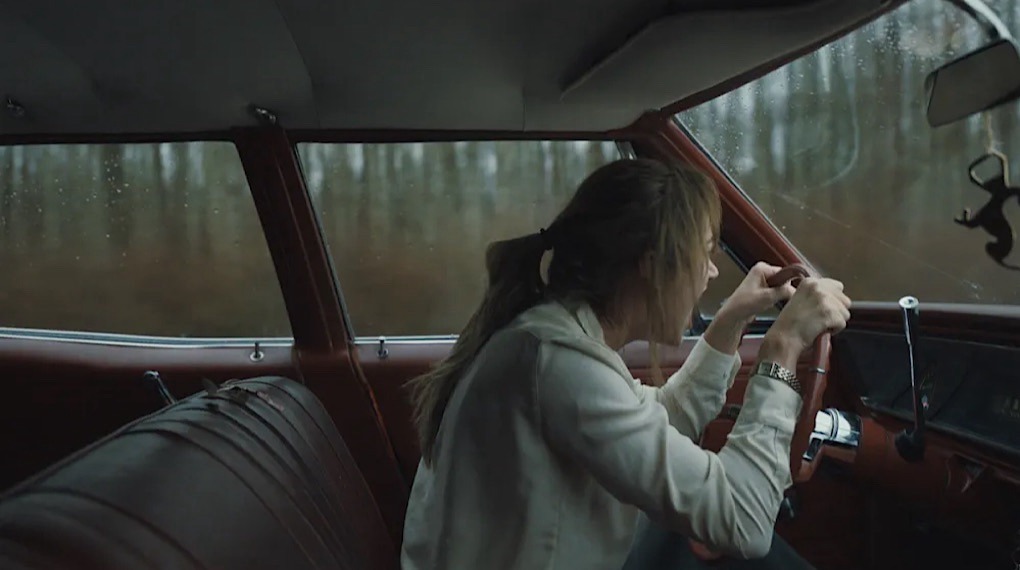Billed as a serial killer horror flick, Longlegs promises a chilling dive into the crimes of a satanic serial killer, wrapped in the eerie, old-timey aesthetics of director Oz Perkins.
From the outset, Longlegs establishes a promising atmosphere. Perkins’ use of vintage filming techniques creates an initial sense of unease, transporting the audience into a bygone era where shadows loom large and secrets lurk in every corner. This stylistic choice is one of the film’s few strengths, effectively setting a mood that initially draws viewers in. However, as the narrative unfolds, the sense of imminent danger dissipates, leaving the tension floundering.
Nicholas Cage, a name synonymous with intense and often eccentric performances, plays the film’s antagonist. While Cage’s acting chops are evident, his character in Longlegs feels poorly written, undermining his ability to elevate the material. The dialogue is clunky and fails to elicit genuine fear or horror. Cage does his best to infuse menace into his role, but the script does not support his efforts. His character’s motivations remain murky, and his actions seem more bizarre than terrifying, robbing the film of the palpable sense of imminent danger that a serial killer story desperately needs. Despite the praise Cage has received for his performance, it feels like he’s fighting a losing battle against a poorly crafted character.
Maika Monroe, on the other hand, is well-cast in her role as Lee Harker and delivers a commendable performance. Monroe has a knack for portraying vulnerability and strength in equal measure, and she brings these qualities to her character in Longlegs. However, much like Cage, she is hampered by the screenplay, which does not give her enough to work with. Her character arc feels underdeveloped, and despite her best efforts, she cannot breathe life into a script that offers little in terms of depth or engagement.
The film’s biggest flaw lies in its inability to sustain a sense of danger. For a movie billed as a serial killer horror flick, the actual threat of imminent danger just doesn’t always feel like it’s there. The tension ebbs and flows inconsistently, often leaving the audience in a state of disengagement. There are moments that hint at potential horror, but they are few and far between, making the film feel more like a tepid thriller than a pulse-pounding horror experience.
The conclusion of Longlegs is light on scares and heavy on the weird and supernatural. While the film does enough to keep you curious, the payoff is underwhelming. The climax, which should have been a culmination of the tension built throughout the film, falls flat. The supernatural elements, instead of enhancing the horror, feel tacked on and out of place, diluting the impact of what should have been a terrifying revelation.
Despite its shortcomings, Longlegs does deliver some horrific moments that will land and shock the audience. There are scenes that effectively utilize Perkins’ stylistic approach to create a sense of dread and unease. However, these moments are overshadowed by the film’s overall lack of cohesion and the inconsistent pacing that makes it feel like a bit of a snoozer at times.
In the end, Longlegs is a film that had the potential to be a standout in the horror genre but falls short due to its poorly written characters, clunky dialogue, and inconsistent tension. While it is not a complete disaster, it fails to leave a lasting impression. Nicholas Cage and Maika Monroe do their best with what they have, but their performances cannot save a film that feels like a missed opportunity.
For those curious enough to give it a try, Longlegs might offer some fleeting moments of terror, but for the most part, it is a film that will likely be forgotten in the vast landscape of horror cinema.
Rating: 5.0/10



